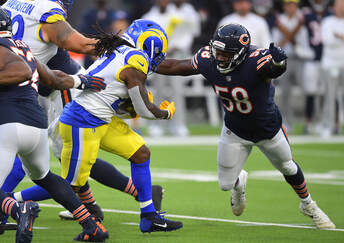 Let’s start by acknowledging that top-division professional sports players and coaches make very intelligent decisions – probably better than many corporate managers. After all, they drill and execute similar scenarios over and over again while facing adversaries who are familiar with their every move. So, let’s drop the “dumb jock” stereotype and admit that football, like soccer, has the same (or fewer) decision-biases and misjudgments as those we would see in a non-sport organization. They can teach us a lot about decision making. In particular, fourth-down plays are very instructive because they are when a football team either kicks the ball away or decides to “go for it” and try to gain enough yards to keep possession of the ball. It is an excellent context for examining how people handle risks and rewards, and Xavier Sobrepere i Profitos, Thomas Keil, and Pasi Kuusela took advantage of this in a recent article in Administrative Science Quarterly. Their idea is simple and novel. It is well known that people consider the risk of gains and losses from their decisions, and mentally they overweigh losses. It is well known that performance feedback on goals affects organizational decisions, so changes and risk taking are much less acceptable when performance is high. Putting these two together, every decision has content (risks and returns) and context (performance relative to goals). These two are usually considered separately, but actually they work together like two blades of a scissors. How does that influence fourth-down decisions? This is where the sophisticated, but still biased, decision making comes into play. Potential rewards are important but not always important: short fourth downs make teams more likely to go for it, but the difference is much bigger in the second half of the game. Goals are important but not always important: teams that are behind in the score (especially more than 10 points) are more likely to go for it, but the difference is much bigger in short fourth downs. And in fact, all of the effects listed here are bigger when the team has advanced beyond the middle of the field, so the opposing team’s endzone is close. To someone who follows football closely, this may seem to make a lot of sense, leading to the question of whether there is any bias here at all – isn’t this completely rational? No, it is not. Even when making risky decisions that are essentially random, potential gains and losses should not be seen as less important when performance feedback is positive. Gain, loss, and risk should not become less diagnostic in such a decision context, but football plays clearly show that they are. And football is a game against an adversary, so a tendency to go for it more often in a specific decision context is an easy “tell” that the opposing team can use to adjust their defense. The same is true outside the world of sports. Perhaps the most important part of performance feedback theory is not how organizations search for alternatives and make changes when performance is below aspiration levels. It is the opposite – how they fail to do so when performance is above aspiration levels. If managers are like these football teams, even known information about opportunities – similar to a one-yard fourth down on the opponent’s 20-yard line – may not be seen as diagnostic enough for their decision. After all, they are meeting their goals. This selective decision making, with performance feedback having an important effect in directing attention towards or away from opportunities, is the true bias revealed by the fourth-down plays. It is one that managers should pay attention to, and so should all those who teach management. Sobrepere i Profitos, Xavier, Thomas Keil, and Pasi Kuusela. 2022. The Two Blades of the Scissors: Performance Feedback and Intrinsic Attributes in Organizational Risk Taking. Administrative Science Quarterly, forthcoming. Comments are closed.
|
Blog's objectiveThis blog is devoted to discussions of how events in the news illustrate organizational research and can be explained by organizational theory. It is only updated when I have time to spare. Archives
May 2024
Categories |
 RSS Feed
RSS Feed